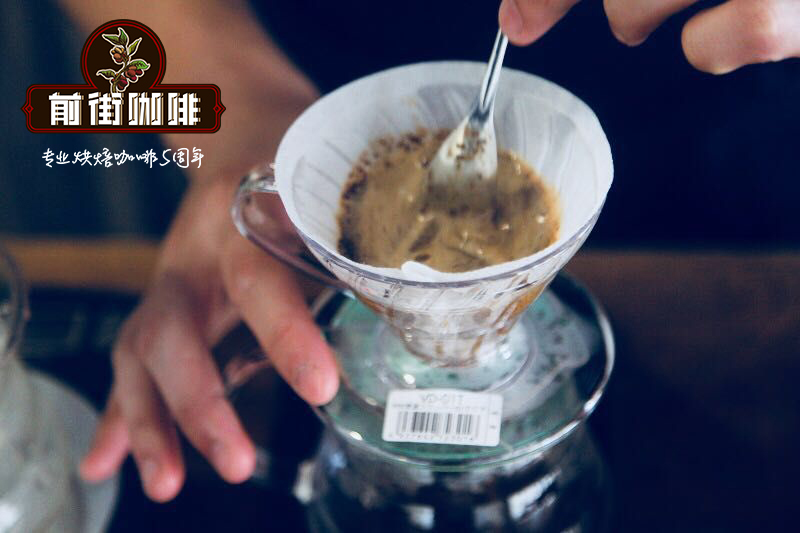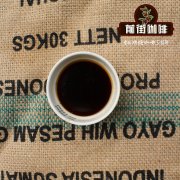How much coffee is produced in Peru? What are the characteristics of washed coffee from the Yanisha Cooperative in Peru?

Professional coffee knowledge exchange more coffee bean information please follow the coffee workshop (Wechat official account cafe_style)
Peru Peru
Peru is dominated by small farmers, each with less than two hectares of land and produces about 3000 pounds of coffee per hectare. Peruvian coffee is planted in high-altitude areas, mainly Arabica varieties. Under the slow mature growth, the density of beans here is higher, and the flavor changes a lot. Among them, the highest altitude, Peru's most important coffee producing area is: cha Mayou Chanchamayo, located in the central highland on the eastern side of the Andes. This was followed by Amazon Amazonas and San Martin San Mart í n, located in the northern highlands on the eastern side of the Andes.
Peru Yanisha Cooperative G1 washing Peru Cepro Yanesha G1 Washed
■ country: Peru
■ producing area: Villa Rica, Oxapampa
■ altitude: 1200-1800 m
■ treatment: washing
■ level: G1
■ variety: Arabica
■ flavor description: herbs, chocolate, hazelnut, cream, caramel sweet, citrus sour
Villa Rica, where Cepro Yanesha cooperatives are located, is divided into the province of Oxapampa, which is located between the province of Okapampa and the well-known producing area of Chanchamayo, that is, the highest mountain in the Americas, east of the middle of the Andes, and a highland area with large ecological forest areas. The coffee growing area is located in the high altitude area of 1200-1800 meters, with rich animal and plant species and cool temperature. Cepro Yanesha cooperatives are set up with small farmers in the mountainous areas around Villa Rica as partners to provide professional technical assistance and training, carry out selective picking, harvest only ripe red fruits, and hold seminars irregularly in the cooperative farmer community. It is expected that through education and the implementation of various policies to achieve the improvement of farmers' economy, respect for human rights and friendly environment.
Peru Organic Yanisha Cooperative G1 washing Peru Arabica Organic Yanesha G1 Washed
■ country: Peru
■ producing area: Villa Rica, Oxapampa
■ altitude: 1500-1850 m
■ treatment: washing
■ level: G1
■ variety: Arabica
■ flavor description: milk chocolate, drupe, walnut, with citrus acidity in the end.
Located in the Amazon jungle, foggy and rainy climate conditions, Yanisha annual rainfall is about 1500-2000MM, the main varieties are Tibica, bourbon and Kaddura, Yanisha's purpose is to "produce the best coffee in the world". In order to continue to move towards this goal, Yanisha continues to adopt, implement and improve agricultural equipment, and set up a quality control center in Chia Mayou, and in the face of financial shortage. COINCA- Raw Bean Export Trading Company has extended a helping hand by not only providing solar dryers, but also transporting raw beans from Oxapampa to the trading market La Merced. With the full support of COINCA, farmers only need to concentrate on growing coffee beans. In order to ensure and improve the production conditions and quality, COINCA keeps investing in equipment and implements a new inventory management system, which can more finely track the quality and grading of raw beans.
The government vigorously promotes the increase of coffee production
Peru produces less coffee annually than other countries that grow coffee beans, so special emphasis is placed on the cultivation of boutique coffee. In terms of planting and processing, the local manor is not only rigorous, but also mature in scale and system. Because of its strict quality control, Peruvian coffee has a very high international rating. Apart from winning awards in coffee competitions and cup testing competitions in Europe and the United States, the American Fine Coffee Association Specialty Coffee Association of America (SCAA) has even named the Peruvian El Tunki coffee as one of the "best boutique coffee in the world".
In addition, the Peruvian government has adopted planned cultivation in order to increase coffee production. Peruvian Deputy Minister of Agriculture Juan Escobar Guarda also stressed that coffee is one of the most widely grown crops in Peru and the most important agricultural product for export. In 2008, the Peruvian Ministry of Agriculture passed legislation to designate August 28 as the Peruvian Coffee Festival to promote the cultivation and consumption of Peruvian coffee. In recent years, Peru has developed friendly relations with China, and the Chinese government has promised to provide material support to Peru to provide Peruvian coffee industry with disaster resistance and prosperity, and hopes to bring Peruvian coffee to China, which has opened up huge business opportunities for Peruvian coffee.
Important Notice :
前街咖啡 FrontStreet Coffee has moved to new addredd:
FrontStreet Coffee Address: 315,Donghua East Road,GuangZhou
Tel:020 38364473
- Prev

Introduction to Peruvian Organic Coffee Cooperatives in the North, Central and South of Peru
Professional coffee knowledge exchange more coffee bean information follow coffee workshop (Wechat official account cafe_style) Peru began to export coffee in 1887 and is now the eighth largest producer and the world's largest exporter of organic coffee, with an annual volume of 2 million bags, accounting for 5 per cent of total exports. More than 1/3 of the country's coffee is grown in the Cajamarca region in the north and in the south.
- Next

What is the green owl coffee in the Borha Manor of El Salvador? Salvadoran coffee grading system?
For more information on coffee beans, please follow the Coffee Workshop (official Wechat account cafe_style) El Salvador, the smallest and most densely populated country in Central America, has been growing coffee since 1740, according to the relevant literature. The land area of growing coffee accounts for about 8% of the country. Dazhi is divided into five main producing areas, namely Apaneca and Centra.
Related
- Detailed explanation of Jadeite planting Land in Panamanian Jadeite Manor introduction to the grading system of Jadeite competitive bidding, Red bid, Green bid and Rose Summer
- Story of Coffee planting in Brenka region of Costa Rica Stonehenge Manor anaerobic heavy honey treatment of flavor mouth
- What's on the barrel of Blue Mountain Coffee beans?
- Can American coffee also pull flowers? How to use hot American style to pull out a good-looking pattern?
- Can you make a cold extract with coffee beans? What is the right proportion for cold-extracted coffee formula?
- Indonesian PWN Gold Mandrine Coffee Origin Features Flavor How to Chong? Mandolin coffee is American.
- A brief introduction to the flavor characteristics of Brazilian yellow bourbon coffee beans
- What is the effect of different water quality on the flavor of cold-extracted coffee? What kind of water is best for brewing coffee?
- Why do you think of Rose Summer whenever you mention Panamanian coffee?
- Introduction to the characteristics of authentic blue mountain coffee bean producing areas? What is the CIB Coffee Authority in Jamaica?

